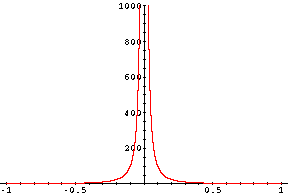I'm fairly certain that's exactly what science says. All known facts point to it. In fact, science has already progressed to within fractures of seconds post-Big Bang. That, of course, doesn't mean there's some magic trick at 'the beginning', but science doesn't deal with magic. It deals instead with the known universe. (That still leaves room for plenty of speculation, of course.)
You might be talking about different things. The Big Bang is to cosmology as evolution is to life. It very nicely explains a great deal of the present and past. But it says nothing concrete of the initial conditions.
Big Bang theory has an amount of theory that is, for all useful purposes, 'known'. But when dealing with t=0 and singularities, there's an infinite amount of distance between 'the beginning of time' and 'a few nanoseconds in' (though, if I recall correctly, there are a variety of mathematical models for 'a few nanoseconds in' that fit the known facts, so we don't even have super-strong theory at 'close' to the beginning).
You're right that the Big Bang deals with the 'known' universe. But that's not a complete statement. The Big Bang talks about how a mass of condensed plasma became what we see today. But it's not so good at explaining the origins of the condensed matter. It actually doesn't make any statements at all about that.
......
In concession to the theists, I'll agree that I short-cut to the idea that the Universe is a self-existing phenomena, much like how they'll short-cut to that conception of God. As far as I can tell, their description of God is a lot like my description of the (total) Universe. They just seem to throw in some attributes into God that I think are unwarranted based on either philosophical necessity or evidence.
"The universe needs no Creator", they'll say. "okay", I"ll say back. "Oh, and he told Jews to not eat pork"
"Huh?"
As a wannabe vegetarian, I'll agree that the universe is telling us to not eat pork. But it's hardly an exhaustive list, and not for the reasons given.


